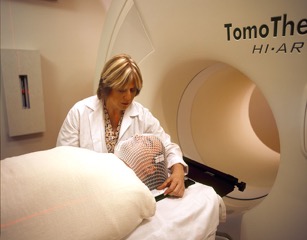Yale New Haven Hospital and the Yale School of Medicine have been at the cutting edge of research for many decades, conducting numerous studies to advance health care and improve treatments by searching for effective treatments that minimally harm the patient’s body. One recent study carried out at Yale New Haven Hospital (YNHH) focused on identifying a “utility-maximizing” method of treating HPV-negative head and neck cancer.
HPV, short for Human Papillomavirus, is a virus widely associated with several different types of cancers, but most prominently with throat and cervical cancers. Among cancers of the oropharynx (the middle part of the throat behind the mouth), the majority are HPV-positive, implying a virus-induced cancer. In contrast, HPV-negative cancers are not caused by the virus and are often found in smokers. HPV-positive patients typically experience better outcomes than HPV-negative patients. This difference in recovery and survival rates raised a novel possibility of treating patients differently based on the cause of their cancer, specifically their HPV status. The idea has powerful implications as it shifts the focus of cancer management decisions on the mode of development of the tumor.
Conventionally a tumor would be surgically removed then followed up by an intensive combination of chemotherapy and radiotherapy if necessary. Given the detrimental effects of this treatment on the body, however, more is not necessarily better, and eradicating the cancerous cells does not come without consequences. Treatment can be accompanied by several damaging side effects that include difficulty swallowing, severe pain, and saliva and taste dysfunction.
The recent YNHH paper compared the effectiveness of the convential approach with a combination of chemotherapy and radiation without upfront surgery. In this case, the tumor would melt away first, reserving surgery as a back-up plan rather than a first resort. The study, led by Dr. Jacqueline Kelly and Dr. Zain Husain, showed that involving upfront surgery did not produce improved survival overall compared to a combination of chemotherapy and radiation therapy. However, their findings do not negate the need for surgery in some patients with HPV-negative oropharyngeal cancer. “The upfront-surgery strategy should still be considered for many patients depending on their tumor extent as well as their overall health,” said Dr. Henry Park, who was a co-author on the study. “However, our findings suggest that we do not need to perform all three types of treatment on all of these patients simply for the sake of escalating treatment, since outcomes are not necessarily better.”
Cancer treatment is continuously evolving as humans fight back against the disease and new treatments are constantly being researched. Dr. Park also touched on immunotherapy as a potent new therapy that he is seeing incorporated more often into treatment plans alongside conventional therapies in the near future.

